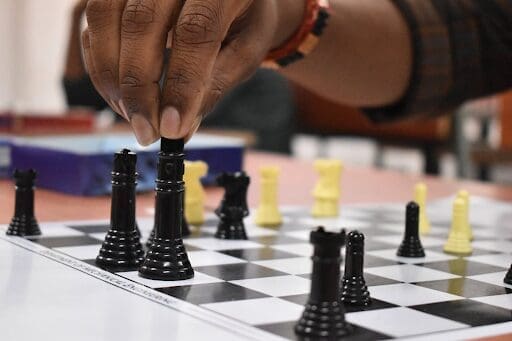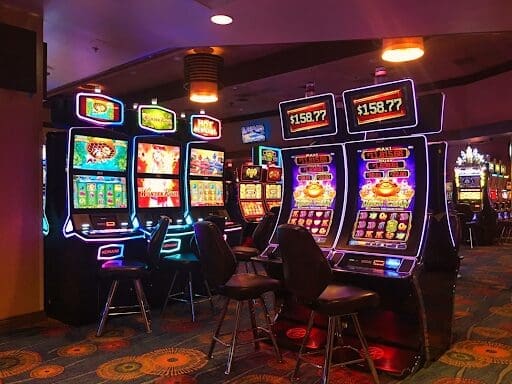In sports, strategy means having a plan, knowing when to attack, when to hold back, and how to react when things don’t go as expected. Risk management comes in when a team or athlete decides how much they’re willing to put on the line at any moment, whether it’s pushing harder or playing safe. These ideas aren’t limited to the field. They also show up in digital gaming. The clearest example is in casinos, where chance and planning come together, and managing risk can make all the difference.

Strategic Thinking in Sports
When we consider strategy in sports, we refer to how athletes and teams have to plan their strategy before going to the field. Training programs, video analysis, and set tactics provide structure, but actual play is never predictable. Players should be able to make in-game changes, like changing to defense within seconds. According to Statista data, more than 60% of European football teams use in-game analytics to make these decisions, which reveals the extent to which strategy is based on preparation and real-time decision-making. Key areas of sports strategy:
- Cycles and preparation of training
- Adjustments under pressure
- Balancing risk in every move
These parts work together. Training lays the foundation, whereas on-the-field changes make teams competitive. A balance between planning and reacting is what causes even powerful teams to lose their leading positions at crucial moments.
Shared Ground With Gaming
Sports and gaming meet on the same ground when making decisions under pressure. In both, you act with limited information and weigh the possible risks against potential outcomes. A striker deciding to shoot from distance is not so different from a player choosing a bigger bet at the casino table. Probability plays the same role, too — statistics guide athletes, while odds and payout tables guide players. Casinos make this connection very clear. The popular game Monopoly Live, for example, mixes random wheel spins with bonus rounds that reward planning. Just like in sports, you can’t control every factor, but you can manage how much risk you take. In the end, preparation and smart choices decide whether the outcome leans in your favor.
How Casinos Show Strategy and Risk
Casinos make it easy to see how planning and risk-taking go hand in hand. Every choice matters, from how much you bet to which game you sit at. In blackjack, you might decide to hit or stand based on the dealer’s card, leaning on probability charts to guide you. In roulette, it’s often a question of spreading smaller bets across the table or putting everything on one number. The result still depends on luck, but your approach changes the level of risk.

Managing your bankroll is just as important. Setting limits, splitting funds into smaller sessions, and avoiding the trap of chasing losses all help keep play under control. These habits don’t remove chance from the equation but reduce exposure to big setbacks. Like in sports, where pacing and energy management matter, casinos show how structure and discipline can turn risk into something you can handle instead of something that controls you.
Tools for Managing Risk in Casinos
Risk in casinos isn’t only about winning or losing a single bet. It’s also about how players manage their time, money, and overall approach. Just like athletes use recovery plans or limit training loads to avoid injury, casino players rely on tools that set boundaries and keep activity under control.
| Tool | How It Works | Sports Parallel |
| Deposit limits | Set a maximum amount for adding funds | Training load limits |
| Stop-loss | End play after reaching a certain loss | Injury prevention by resting |
| Session budgeting | Divide bankroll across several sessions | Energy management in matches |
| Self-exclusion | Temporary or permanent block on play | Season breaks for recovery |
| Time reminders | Alerts when a session runs too long | Scheduled rest during training |
The Role of Probability and Data
Probability shapes decisions in both sports and casinos. Coaches track stats to estimate scoring chances or predict outcomes, while players at the tables look at odds before placing a bet. In football, data shows that teams with over 55% possession win roughly two-thirds of their matches (Statista, 2024). In casinos, roulette carries a house edge of about 2.7% in European versions, showing how probability quietly guides every result.
Data-driven tools support both fields. Sports teams rely on analytics to refine tactics, while casinos use Random Number Generators (RNGs) to guarantee fairness in digital games. The value lies in transparency. Athletes need accurate numbers to shape their strategy, and players benefit from clear odds when managing risk. Numbers don’t remove uncertainty but make decisions more informed and less random.
Final Thoughts
Sports and gaming are built on the same principles: planning, managing risk, and making decisions when the outcome is uncertain. Casinos make this especially clear, since every move blends luck with strategy and every session depends on how limits are set. Bankroll control, deposit caps, and structured play echo how athletes pace themselves or adjust tactics during a match. In both cases, preparation and discipline matter. Luck plays a role, but informed choices decide how much risk you can carry.
